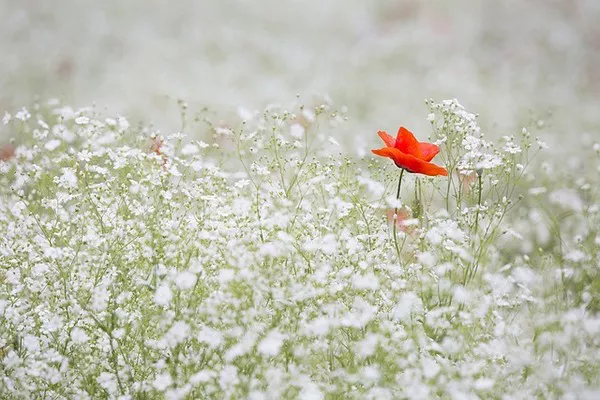Flowers have captivated human hearts through their natural beauty and enchanting fragrances for centuries. Beyond their aesthetic appeal, flowers possess a rich symbolism that transcends cultures and time. They have been used as a means of expression, communication, and celebration. In this article, we delve into the fascinating world of floral symbolism, exploring the diverse meanings associated with different flowers.
Historical Significance of Floral Symbolism
Floral symbolism finds its roots in ancient civilizations, where flowers were closely connected to mythology, religion, and cultural practices. For example, the lotus flower holds deep spiritual significance in Eastern cultures, representing purity and enlightenment. Similarly, the rose has long been associated with love and passion in various mythologies throughout history.
Love and Romance
Flowers have traditionally been a popular way to express love and romance. The red rose, often dubbed the “queen of flowers,” symbolizes passionate love and desire. Other flowers like tulips, daisies, and orchids also convey different aspects of romantic feelings, such as admiration, loyalty, and elegance.
Beauty and Elegance
Many flowers are admired for their sheer beauty and gracefulness. The lily, with its pristine petals, represents purity and innocence. Orchids, known for their exotic beauty, symbolize rare and delicate charm. Peonies, roses, and irises are other flowers celebrated for their captivating allure and elegance.
Friendship and Gratitude
Flowers can express sentiments beyond romantic love, playing an essential role in friendships and expressing gratitude. Yellow roses are often associated with friendship, conveying warmth, joy, and companionship. Sunflowers, with their vibrant yellow hues, symbolize loyalty and respect. Daffodils and gerbera daisies are also commonly exchanged among friends to celebrate their bond.
Strength and Resilience
Certain flowers embody strength, resilience, and endurance. The lotus flower, originating from murky waters, represents rising above adversity and achieving enlightenment. Irises symbolize courage and wisdom, while the gladiolus signifies inner strength and integrity. These flowers inspire individuals to face challenges with determination and fortitude.
Grief and Condolences
Flowers provide solace during times of grief and loss. Lilies, particularly white ones, are often associated with funerals and symbolize purity and the restoration of innocence in the afterlife. Chrysanthemums, especially in Asian cultures, represent mourning and are commonly placed on graves as a token of respect for the departed.
Renewal and New Beginnings
Spring is a season of rejuvenation and blooming, and several flowers symbolize renewal and new beginnings. Daffodils, with their vibrant yellow trumpets, signify the arrival of spring and the promise of a fresh start. Cherry blossoms, celebrated in Japanese culture, represent the transient beauty of life and the fleeting nature of existence.
Prosperity and Abundance
Flowers have also come to represent prosperity and abundance. In Chinese culture, the peony is regarded as the “king of flowers” and symbolizes wealth, honor, and good fortune. Similarly, sunflowers, with their tall stature and golden petals, signify abundance, success, and a positive outlook.
Healing and Well-being
Flowers have long been associated with healing properties and promoting well-being. Lavender, known for its calming scent, is frequently used in aromatherapy to alleviate stress and anxiety. Chamomile flowers are renowned for their soothing effect and are often brewed into tea. Flowers like marigolds and calendula have been used in traditional medicine for their anti-inflammatory and antiseptic properties.
Conclusion:
The language of flowers is a universal form of communication, allowing us to express a myriad of emotions and sentiments. From love and friendship to grief and renewal, flowers hold immense symbolic value in our lives. Understanding the meanings behind various flowers enables us to enhance our connections with others, celebrate special occasions, and find solace during difficult times. So, let us embrace the profound symbolism of nature’s delicate gems and allow flowers to speak the unspoken words of our hearts.


